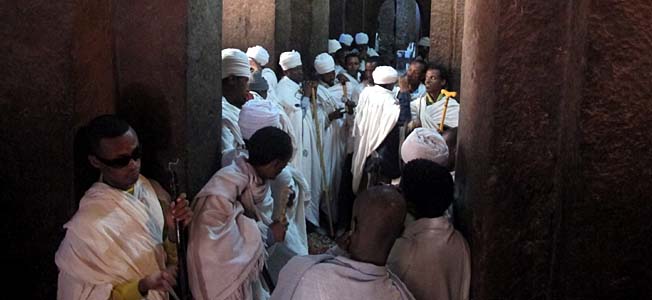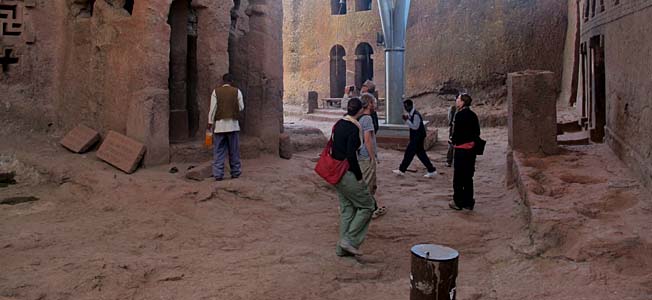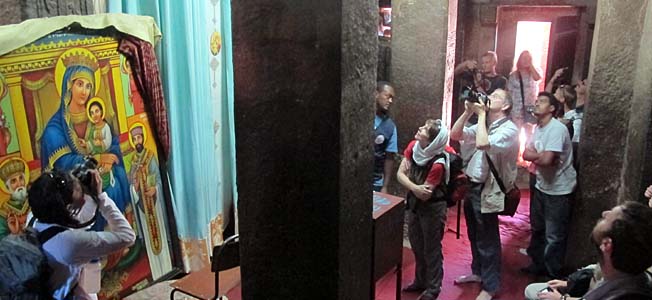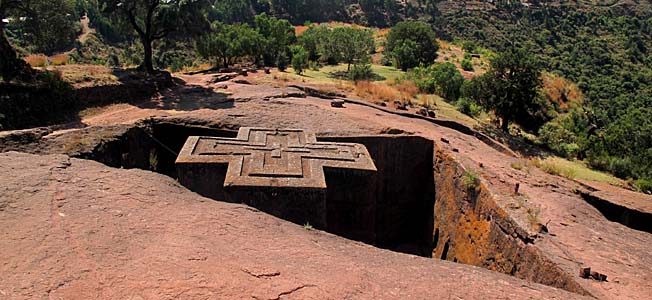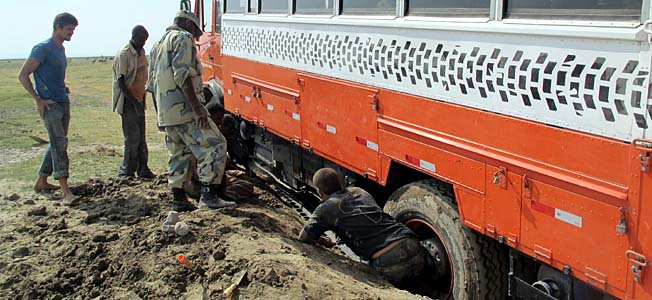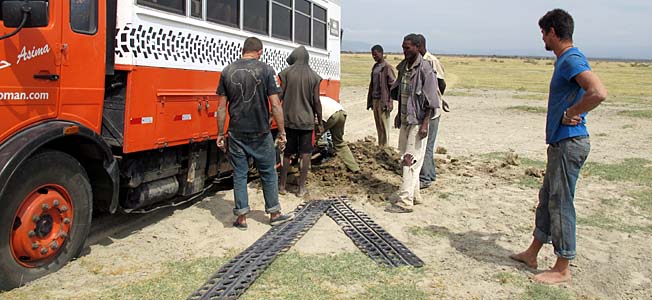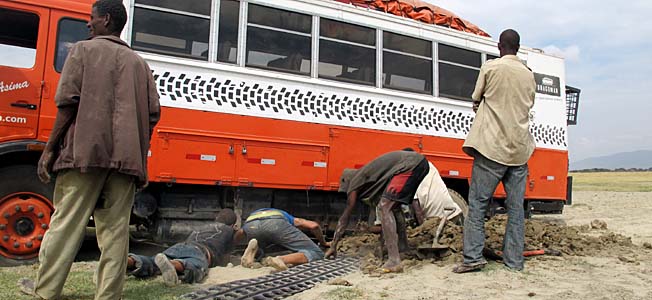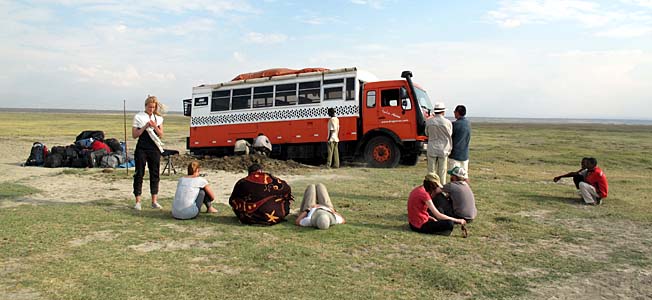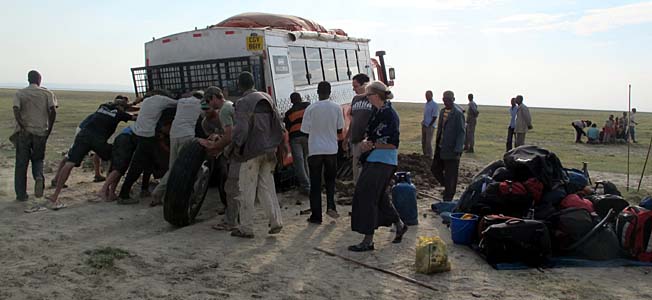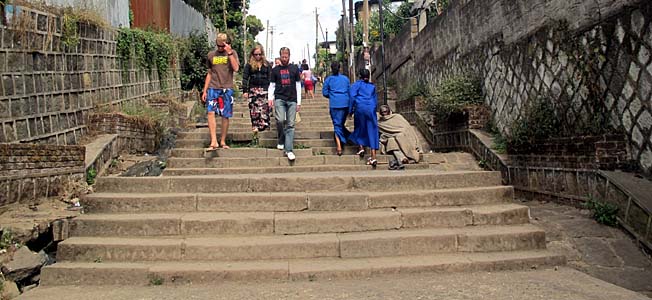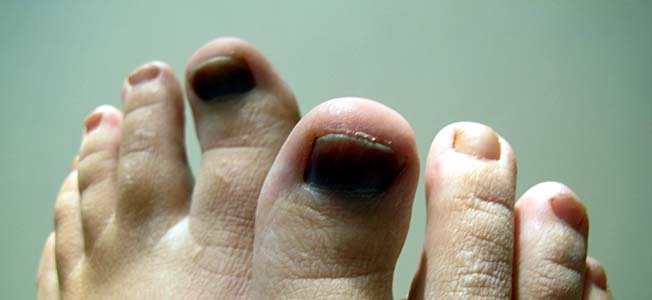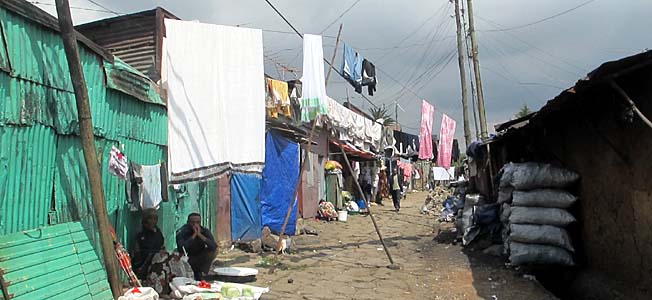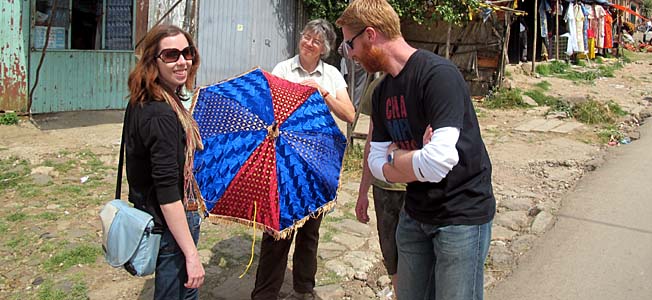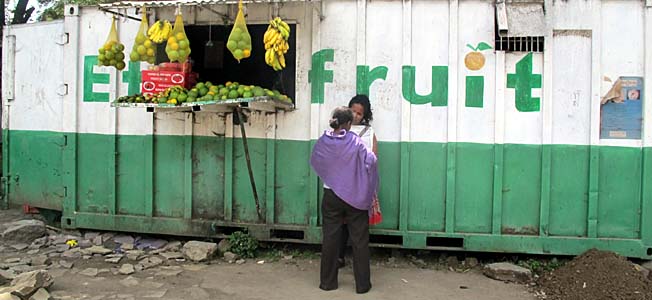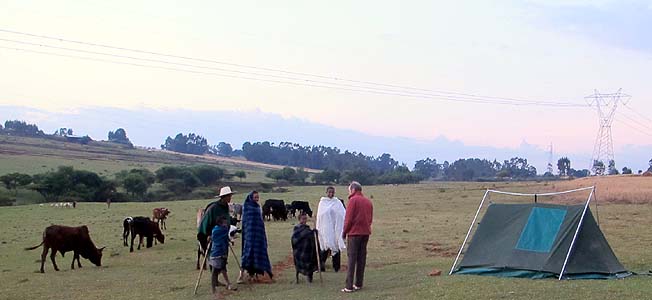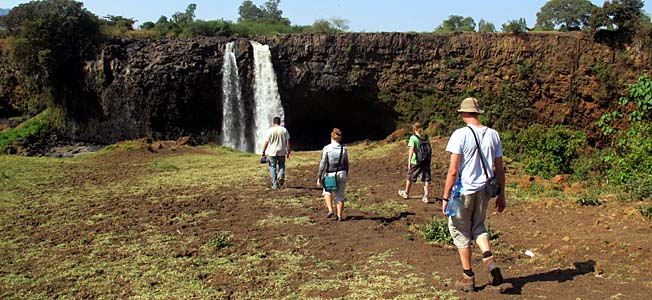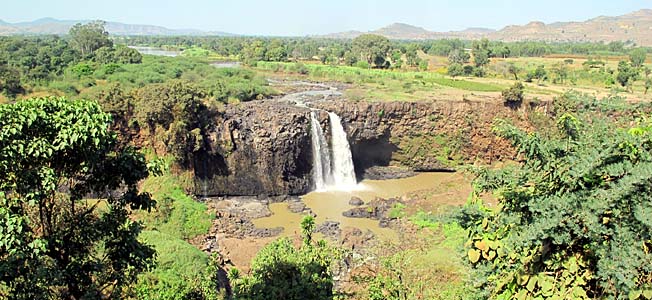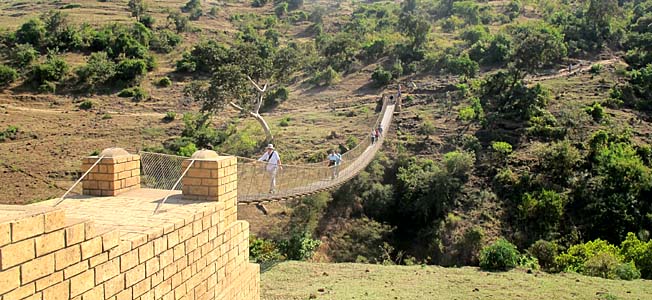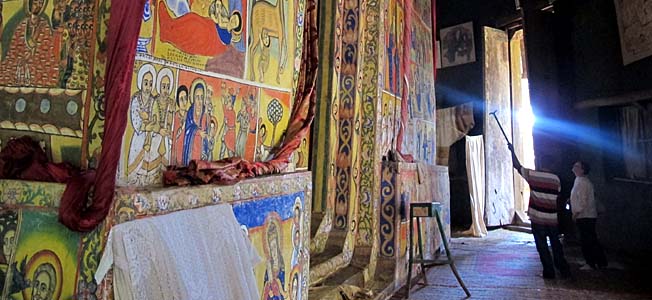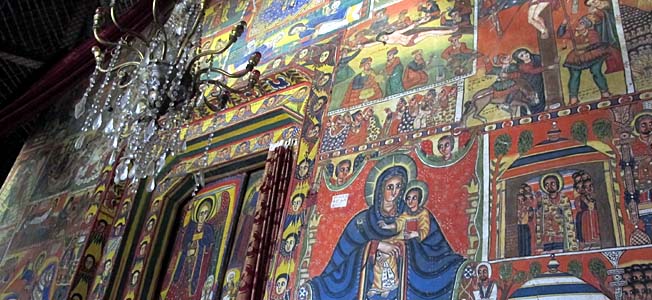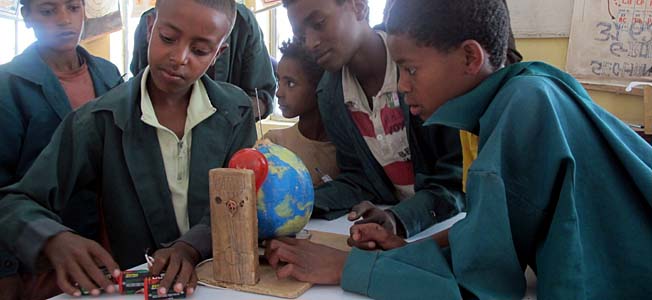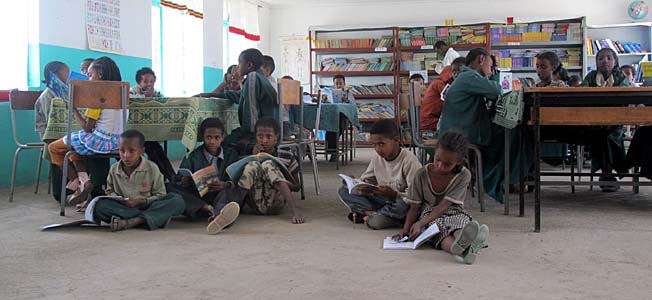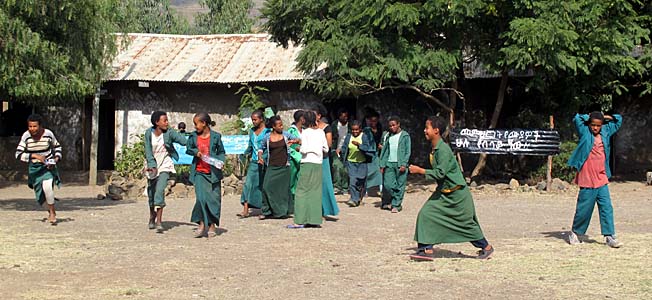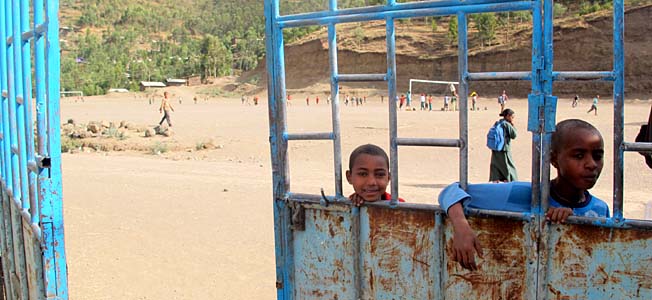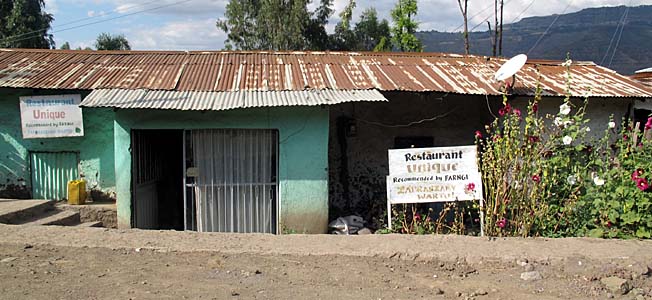This day was dedicated to visit the churches of Lalibela. Our local guide picked us up in our hotel and we walked down to the church area of the city. Upon arrival our guide introduced us to two other guys who will watch our shoes while we are in church. You basically need to take off your shoes whenever you enter a church in Ethiopia and some people seem to care that they don’t get stolen. On the other side employing people to watch your shoes is another methods of extracting as much money out of western travellers as possible, meaning once you have agreed on a service (guided church visit in this case) and a price it turns out at a later stage that you need to pay additional money for services you have either not requested or they were to your understanding of the agreement included in the price. So basically in Ethiopia you always have to watch out for these additional charges.
We started our church visit at the Bete Medhane Alem Church which is said to be the world’s largest monolithic church. It’s very impressive to see a whole church hewn out of the rock surrounding it. The rock is basically the ground so that the churches are under the earth’s surface and the roof of the church is about even with it. Our guide provided us with tons of facts which I personally found quite boring especially because most of them seemed to be made up just to have something to talk about. I preferred more to walk around with a few people and discover the churches on our own instead of listen to him all morning. We very much enjoyed mingling with the locals covered in white cloth, singing, dancing and praying in one of the churches. Absorbing this spiritual atmosphere matters much more to me than thousands of historic facts our guide was bombarding us with.
We ended our morning tour at the Church of Saint George which is the most famous and last build church in the area of Lalibela. The roof of the church forms a cross which is the first thing you see when entering the area of the church.
Lunch was at the “Seven Olives” restaurant which was a much more touristy spot than the “Unique” restaurant the day before. We ended up paying three times as much for food which was less tasty. However, the restaurants terrace was quite a scenic spot overlooking the whole town which alone was worth the visit. In the afternoon we continued our tour going into a few more of the underground churches.
The evening was dedicated to Michelle’s birthday celebration. We kicked it off with a group dinner at the “Seven Olives” which only a part of the group attended since everyone wanted to have dinner at a different place. Afterwards we headed off to the Tej house we discovered the day before and had some cheap booze. Everyone was expected to be at the Tej house to celebrate Michelle’s birthday but not everybody came and some, including Michelle, came an hour later than agreed so that we started to worry that we are at the wrong place. However, Michelle and a few others showed up after a while but she was not able to deal with any more alcoholic drinks so that she was escorted back to the hotel.
We continued our tour in another Tej house which was much more touristy and much more pricy than the first place. While a “glass” of Tej was 3 Birr (0.18 USD) at the first place it costs 30 Birr (1.80 USD) here. However, there was some nice music and we could dance with a few other travellers and locals. The locals had a very interesting style of dance rolling their shoulders to the beat of the music. Some were better in it than others resulting in little dance competitions as you might know them from the 80ies street break-dancing.
I was one of the last ones exiting the Tej house leaving only three of the male hard-core drinkers behind. When I arrived back at my hotel room Michelle was surprisingly fine for here level of alcohol so that I decided to go to bed. About two hours later our fellow traveller Tom from Ireland showed up in our room. He mixed up his own room with ours and due to his level of alcohol I needed to remind him about ten times that this is not his room and he should leave it. The next morning we’ve been told that Tom ended up in another room lying down on the bed of our driver Daniel. As Daniel woke up he was very much confused but managed to find out Tom’s room number and to bring him into his own bed. Michelle and I also spent the night with the door of our hotel room being widely open since Tom didn’t manage to close it when he left our room…
